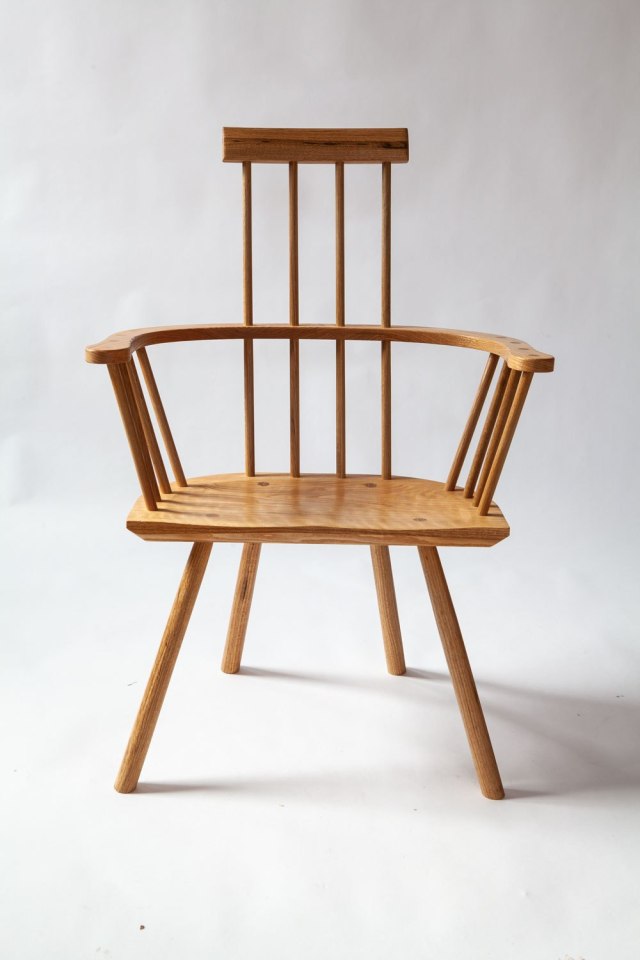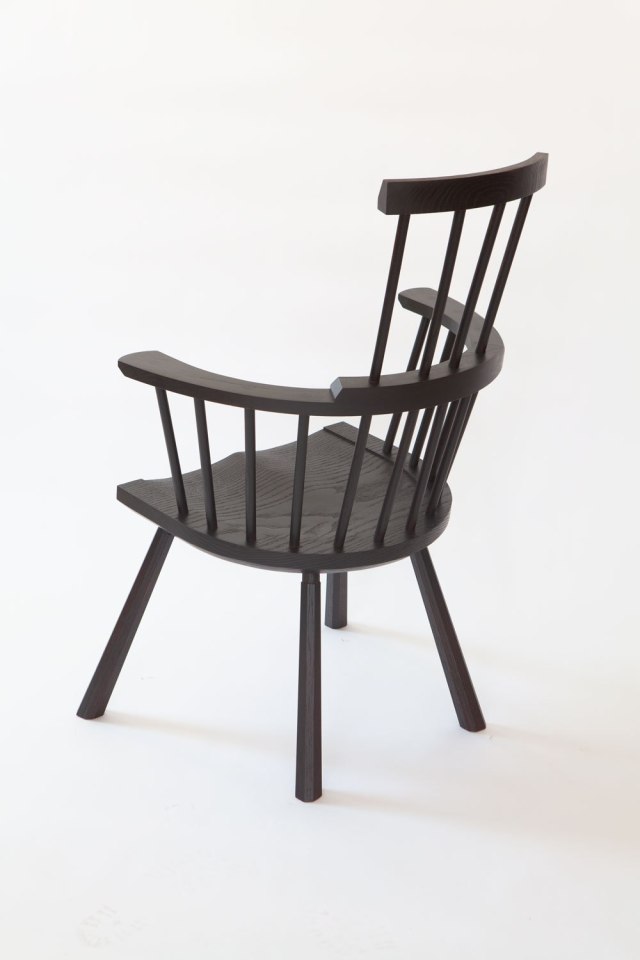Things tagged christopher schwarz:
St Fagans
Christopher Schwarz at Lost Art Press:
For at least the 12th time this month I’ve looked at the work on my bench and found that the odder it looks, the better.
I’m building a near-replica of a chair on display at St Fagans National Museum of History, and replica work is not usually my bag (or it hasn’t been for a long, long time). At every turn, this chair does the opposite of what I would do if it were my design. But I vowed to stick as close to the original as possible.
Why am I doing this? To attempt get inside the head of the original Welsh maker and perhaps learn something.
The Acceptance Speech
Christopher Schwarz at Lost Art Press:
Whenever I finish an important project, I feel I should give a cheesy “acceptance speech” like you see for awards programs (“I’d like to thank all the world’s mentally defective sea turtles…”). Though my speech (said quietly to myself) always thanks certain tools and fellow woodworkers.
Were I a wanker, I would post photos of my latest chair and say things like: Check my new design, brh. Then a series of acronyms – FISKET and YAMLO. Then the hashtags – #gravycouncil #billyraycoochierash #sponsored.
But that’s not fair. Every piece of furniture is the culmination of the designer’s experiences, influences and previous work. We’re just the blender that takes these ingredients and frapps the frothy result. And so I try to acknowledge these influences whenever possible.
The Anarchist in the Woodshop
Daniel D. Clausen discusses Christopher Schwarz’s work at Lost Art Press:
[The Anarchist’s Design Book] explains, again in narrative form, how to make that kind of simple furniture. With more or less the same basic set of flea market tools in the Anarchist’s Tool Chest, along with a willingness to try, experiment, fail, and try again, Schwarz shows that most people can turn out simple, functional furniture. And it will be better made than what is available flat packed from local box stores, and at a fraction of the price of antiques or what handmade furniture costs. Since crafts people have to make a living building something like a chair a week, if they are quick, that sort of production will never be democratically available. It is cost prohibitive for all but the wealthy, and always will be. (This critique, also leveled at William Morris’s Arts and Crafts movement—that the laborers were making furniture for the rich and thus failing at the Marxist goal of revolution—has never struck me as very damning. There has to be some mechanism to get money from where the money currently is, and we ought to be forgiven if we prefer this one to violence.)
The larger political argument in these “anarchist” books is that in a society structured by late consumer capitalism, we’ve all sold our birthright to making things for the bowl of pottage that is IKEA bookshelves and meaninglessness. It’s an appealing argument for direct action, not just in politics, but in daily material life.
The surprise success of Schwartz’s books prompts some questions: What conditions is Lost Art Press responding to? And why has this response been so successful?
The conditions, obviously, are the same ones that suffuse our political moment. Sit down to actually read Karl Marx and it will be difficult not to grant that his analysis of the conditions of capitalism, if not his rather nebulous prescriptions, are prescient. His labor theory of value is appealing, especially to those who have skill in making things. The concentration of capital, high barriers to entry, and economies of scale with diminishing returns all work against the “petite bourgeois” craftsman.

